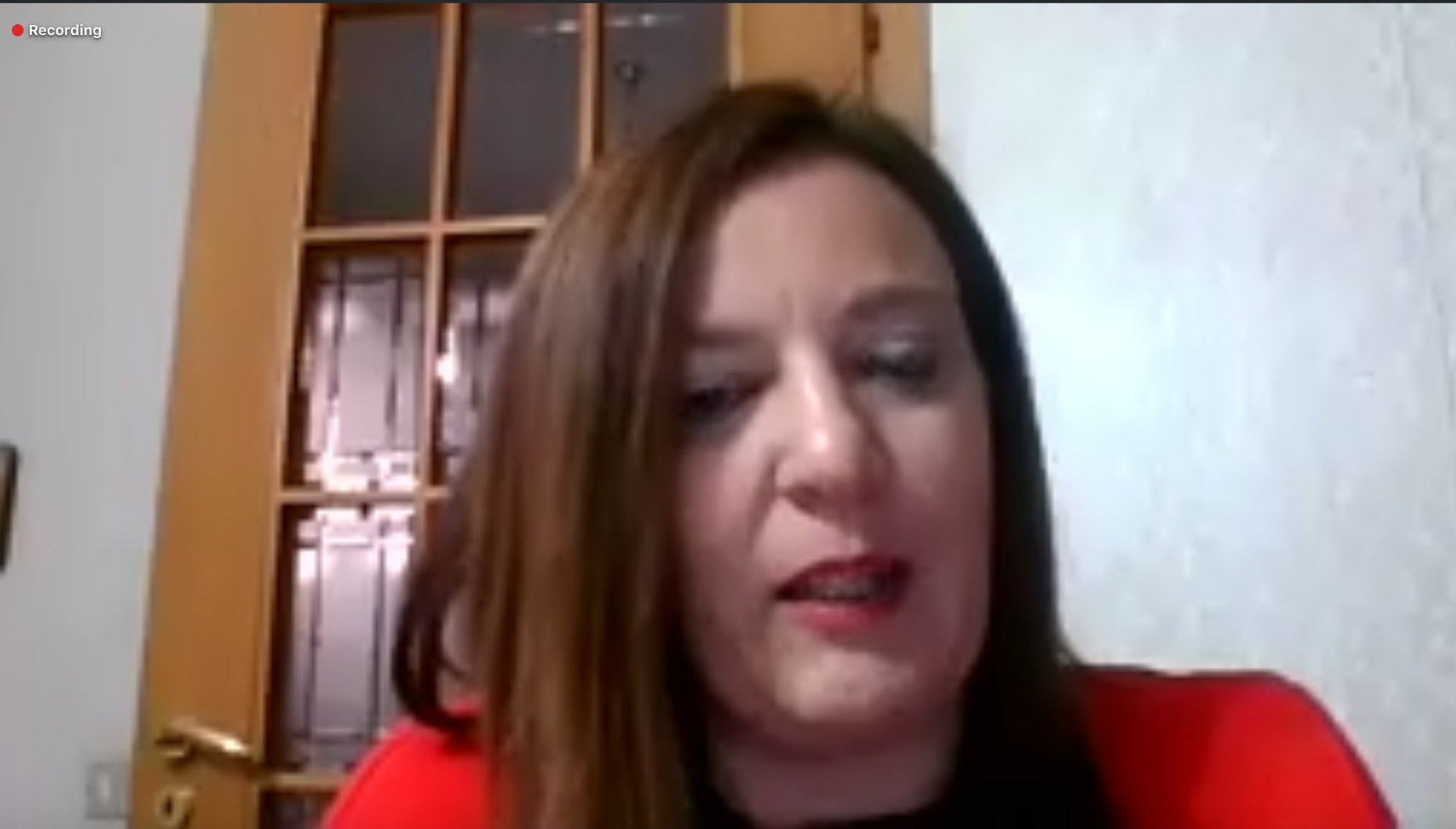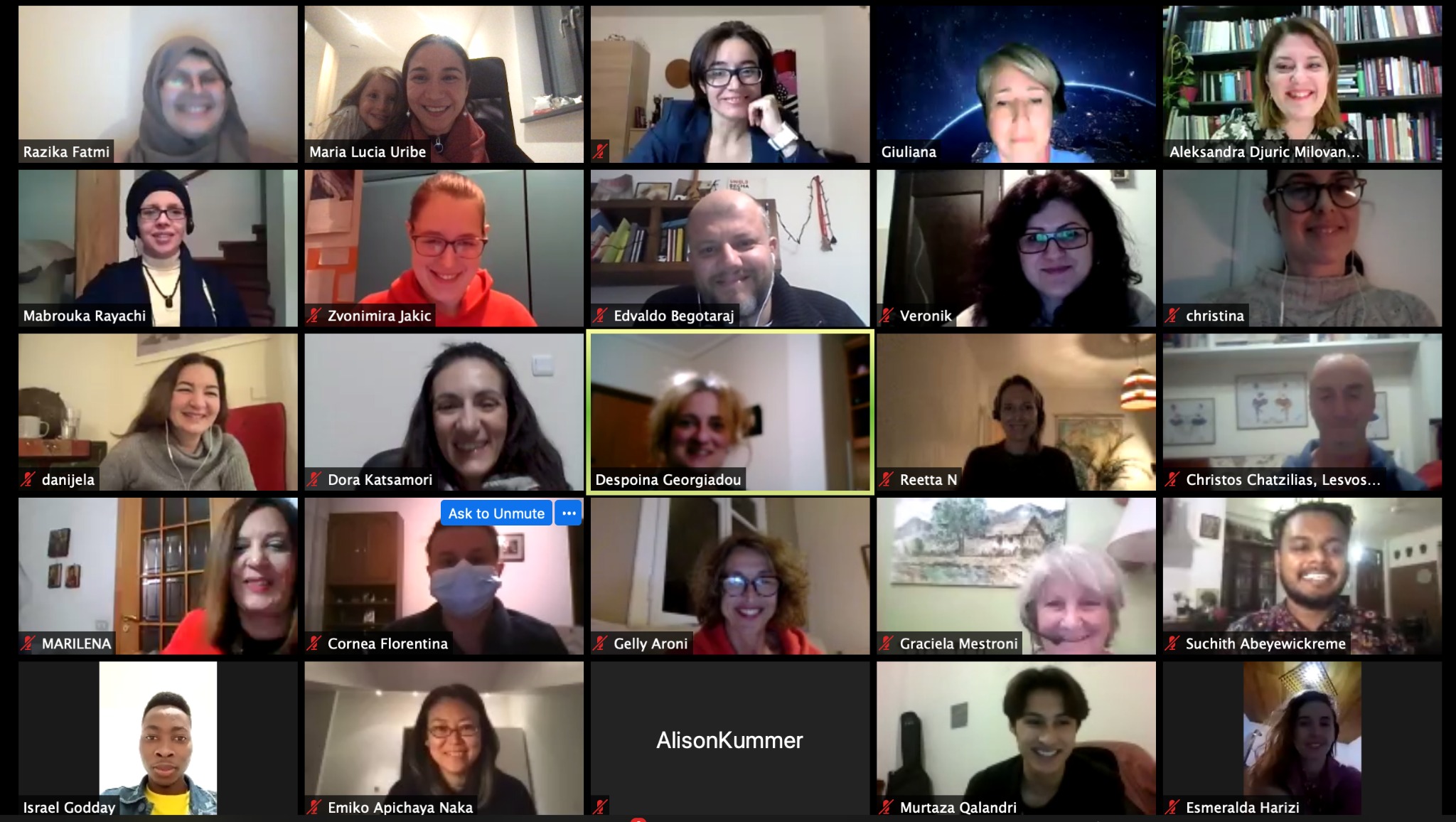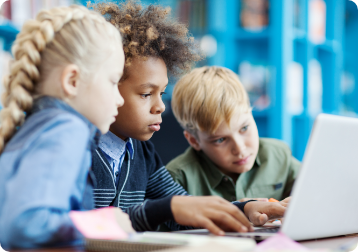
The online module “SOLIDARITY: An ethical imperative for advancing the role of education in migrant and refugee inclusion in Europe,” kicked off on 17 March 2021, gathering 98 participants from Europe and beyond.
Under the title “The role of education in promoting learning to live together among migrant, refugee and host communities in Europe,” this first session aimed at building a dialogue on the role of education in strengthening coexistence and interconnectedness between people from different backgrounds, and to promote learning to live together among migrant, refugee and host communities in Europe.
The online session was moderated by Dr. Aleksandra Djuric Milovanovic, Project Manager of Network for Dialogue at KAICIID. In her welcoming words, she stressed the idea of “considering the needs of different communities and how they can live together, rather than just asking migrants and refugees to integrate.”
Panelists included Mr. Murtaza Qalandri (18), Interpreter and Cultural Mediator and Former beneficiary of the Integration Center for Migrant Workers from the Ecumenical Refugee Network in Greece.
Mr. Qalandri shared about his difficult journey from Afganistan to Greece at a young age, and how everything changed for the best when he settled in Greece. “My first year of school was probably the best year I had in my entire life. The teachers were so kind, so good. They helped me a lot even though I didn’t speak a single word of Greek.”
Also among the panelists were Ms. Dora Katsamori, Project Coordinator, Schools for All – Integration of Refugee Children in Greek Schools, European Wergeland Center; Ms. Malin Ljunggren Elisson, Senior Advisor Education, UNICEF Europe and Central Asia Regional Office; Ms. Marilena Pelonero, Teacher, Istituto Comprensivo M. L. King Caltanissetta, Italy, Member of the Scholas Occurrentes network, and Mr. Joussuf Fane, Student, Istituto di Istruzione Superiore Senatore Angelo Di Rocco, Italy.
After the panel discussion, participants joined different break-out groups to reflect and discuss how education can strengthen interconnectedness between migrants, refugees and host communities.
During the webinar, participants shared about the current challenges and opportunities for learning to live together between migrants, refugees and the host communities. They reflected on the role of education in empowering youth to learn to live together and become agents of change in addressing social cohesion and inclusive education. They also developed recommendations on how to strengthen the role of education in promoting interconnectedness among people and communities.
The SOLIDARITY project includes an online platform that serves as a hub for all the webinars, resources and discussions held throughout the program. Participants were invited to visit the platform and share about the issues they are facing in their own contexts.
The SOLIDARITY project is a collaboration between Arigatou International and the Integration Center for Migrant Workers-Ecumenical Refugee Program (KSPM-ERP), co-funded by the Network for Dialogue (N4D) micro-grant and the KAICIID Dialogue Center.
The next webinars will be held on 21 April 2021, addressing “Psycho-social support for resilience and well-being of children in the context of migrant and refugee inclusion in Europe.” The last session will take place on 19 May 2021 on “Ethics Education to foster intercultural and interfaith learning as a dialogical approach to transform migrant, refugee and host community dynamics.” Registration is open here.
We thank the speakers for their insightful and sincere interventions and the participants for their interest and enthusiasm.

